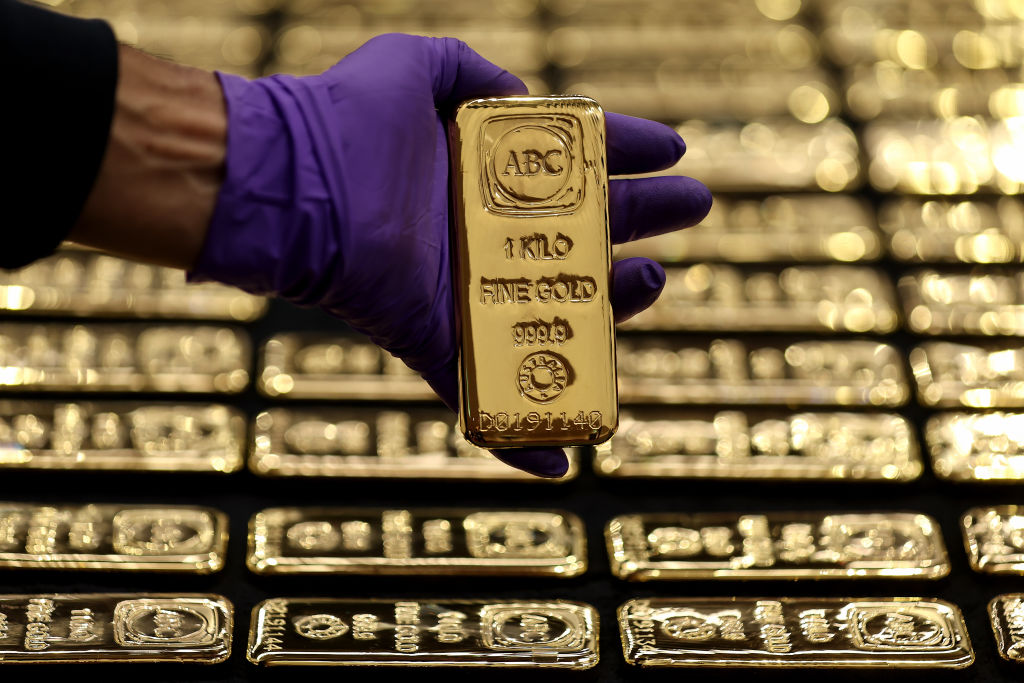After the global instability which characterised 2024, there is widespread hope that this coming year will provide some much-needed respite from chaos. Investors seem to disagree, though, at least if we look at the asset everyone is talking about this January: gold. The consensus seems to be that gold will be a strong performer in 2025 just as it was in 2024 — which, implicitly, means investors are betting that many more global changes are afoot.
Gold started 2024 at $2046 per ounce. On 1 January this year, it was priced at $2622 — an increase of just over 28%. For context, in that same period the S&P500 index only saw total returns of around 25%. Even in a good year for the stock market, those who parked their money in gold found themselves laughing all the way to the bank.
Higher gold in 2025 is nothing short of a consensus trade. JP Morgan, Citibank and Goldman Sachs all have a price target of $3000, with commodities analysts citing lower interest rates, momentum, central bank-buying, and geopolitical turmoil. But, since the start of 2023, only the last two of these reasons have really driven the gold price. The developments are linked: central banks are buying because the geopolitical climate is forcing them to diversify out of dollars, and gold has become a favourite means to do so.
It’s not just central banks which are bullish. Asia Times’s newsletter Global Risk-Reward Monitor, which is widely followed in financial circles, is tipping gold to reach $10,000 an ounce by the end of the decade. While investment banks are looking at annual trends in gold demand, deeper analysts are looking at potentially major changes in the global trading system in the coming years.
On its face, Asia Times’s argument is simple enough: since the seizure of Russian assets in February 2022, countries around the world are moving away from using the US dollar as a reserve currency. Given that the financial markets of these countries are not very well-developed, it is unlikely that they will be able to use their own currencies to fully settle trade with one another by 2030. But there is one time-tested trade settlement mechanism these countries could use: gold.
The problem is that there is simply not enough of the resource currently in existence to settle these trade balances. Or, rather, there is not enough gold to settle these trade balances at the current gold price. If the price adjusts, there will be plenty of gold to go around and the authors at Global Risk-Reward Monitor reckon that around $10,000 would do the trick.
What will trigger this move to trade settlement in gold? The newsletter highlights one possibility: the collapse of a bubble in American tech stocks. In the past, America financed its trade deficit mainly by selling Government bonds to its trading partners. While these bonds are still a key component of international borrowing by the United States, around 2018-19 they stopped being the most important source of external borrowing.
For the past seven or eight years, the US has been financing its trade deficit by selling tech stocks to the rest of the world in return for goods and services. If the price of these stocks crashed, the foreign investments would be severely damaged. At that point, investors might start to shy away from the dollar, while any countries already looking for alternatives would be motivated to hurry up.
We have seen something like this before. At the height of the Nineties tech stock bubble, the US financed its trade deficit using international tech stock sales. In the early-2000s, when the bubble burst, international investors could complain all they wanted but there truly was no alternative to the dollar. That is not the world we live in today. Should gold rise to $10,000 an ounce by 2030, those who have argued that the best way to judge the price of the dollar is by the dollar price of gold will finally be vindicated.











Join the discussion
Join like minded readers that support our journalism by becoming a paid subscriber
To join the discussion in the comments, become a paid subscriber.
Join like minded readers that support our journalism, read unlimited articles and enjoy other subscriber-only benefits.
Subscribe